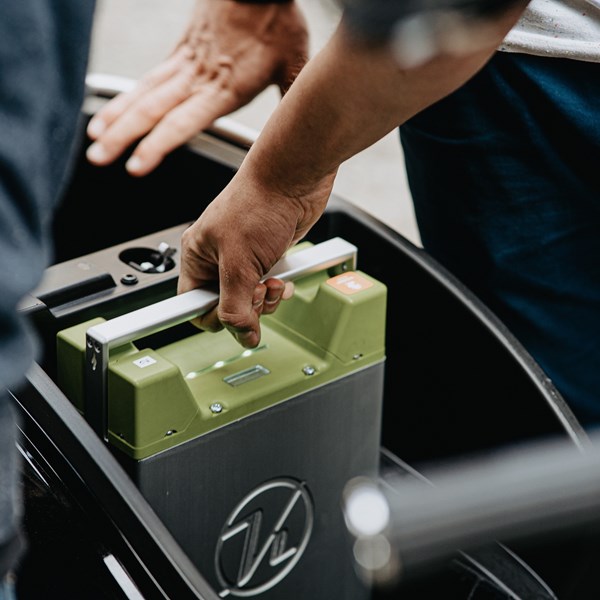This article was first published by Law360 and can be found here.
As the world becomes ever hungrier for environmentally friendly products, the potential for companies to fall foul of greenwashing continues to grow.
Greenwashing is the practice of conveying a false impression or providing misleading information about how environmentally friendly a product is.
It is of course possible to position a product as being environmentally friendly if the supporting claims are correct, clearly phrased, immediately understandable, supported by vital information or independent research, and any disagreements between experts on the validity of claims have been highlighted.
However, allegations of greenwashing can easily arise. A product's claims could be exaggerated, false or deceptive. The claims might not be supported by sufficient supporting information or by easily accessible evidence, or they may be simply too vague.
Some organizations may be tempted by the potential rewards to be enjoyed from capitalizing on the demand for environmentally friendly products to risk the possible penalties for greenwashing. However, these penalties are not trivial. There are of course significant legal and financial penalties, and it is highly likely both will stiffen in the very near future.
But the consequences reach much further than writs or fines. Companies also need to consider the bad public relations that accusations of greenwashing - regardless of whether they are upheld or not - will generate.
Bad press does not disappear overnight. Reputational damage can force even a mature consumer base into the waiting arms of a competitor where they will likely stay, immediately affecting market share and revenues.
GREENWASHING CASES
Recently, the Danish Consumer Ombudsman has very publicly tackled three high-profile cases that allege greenwashing. In Denmark, it is felt this could well be the tipping point, a signal that the authorities are ready to take robust action against greenwashers rather than just continuing to warn against it.
Of the companies the consumer ombudsman reported for malpractice in July, perhaps the one with the highest profile was BMW AG.[1]
On July 19, the consumer ombudsman made a public statement saying it believed BMW's claims that they were "the world's most sustainable car manufacturer" and that their "entire production chain for BMW IX is green" used in various marketing campaigns launched in 2021 and 2022 were without grounds.
It reported the car maker to the Danish police because the statements gave "a misleading impression that its cars are less harmful to the environment than cars from other manufacturers."
This is not the first time BMW has been accused of greenwashing. In January, more than 400 advertising billboards and bus stops in Belgium, France, Germany and England advertising BMW and Toyota PLC's eco-credentials were hijacked by climate activists.
In another case, the consumer ombudsman reported Kombardo Expressen for selling bus trips to consumers by promoting itself with climate-related statements like "this bus emits up to 90% less carbon dioxide" and "travel with a good climate conscience." Meanwhile, their buses were decorated with the statements "this bus emits up to 90% less CO2" and "fueled with fossil-free diesel."
The company was able to show that their buses used biodiesel - hydro-treated vegetable oil fuel - made from waste fractions. This meant that their CO2 emissions were 90% lower than they would be in diesel production, since they were using discarded fats rather than fossil diesel. However, an equivalent amount of fossil diesel was not being burned while the buses were in use.
As a result, the buses still emitted significant amount of CO2 during operation, which, the Consumer Ombudsman felt, meant their marketing statements were misleading to the public.
Hedestoker ApS was also reported for marketing its wood-burning stoves, firewood and wood briquettes using statements including "environmentally friendly," "good for the environment," "fire up with a clear conscience," "gentle on the environment" and "CO2 neutral."
However, the ombudsman found that when wood was burned in their stoves and boilers, they would emit particles as well as tars, dioxins and volatile organic compounds, all of which are harmful to the environment.
Moreover, all the CO2 that the wood had absorbed during its lifetime was also being released, pushing up emission levels even further.
It is important to note that the cases of BMW, Kombardo Expressen and Hedestoker ApS have not yet progressed to formal legal actions. The Danish consumer ombudsman obviously feels their investigations have yielded substantive evidence of greenwashing and have passed that evidence to the Danish police, but it will be the decision of the police whether to launch criminal actions.
While these are the most recent examples to hit the headlines in Denmark, they are part of a legal trend that arguably began in July 2022 when environmental agency Fossielvrij Netherlands, supported by Reclame Fossielvrij and ClientEarth, brought a groundbreaking lawsuit against airline KLM Royal Dutch Airlines.[2]
They claimed KLM's advertising misled the public by giving the impression that the airline was actively tackling climate change even though it had announced plans for air traffic growth that would worsen the crisis.
In June 2023, the case took a significant step forward. The District Court of Amsterdam granted permission for the lawsuit to proceed to a full trial, the ruling in which could spell a new chapter in terms of the way companies are dealt with if found guilty of greenwashing.
AVOIDING ACCUSATIONS OF GREENWASHING
While remaining totally honest about a company or a product's environmental and sustainable qualifications will always be the best way to avoid accusations of greenwashing, there are several practical steps that will provide even greater protection against potential challenges:
- Clearly define sustainability goals using specific, measurable and recognized metrics.
- Be cautious when using green imagery, symbols or color palates, as these can unwittingly give a false impression of sustainability.
- Avoid using unsubstantiated claims by backing all claims with data, evidence and examples - online or via social media.
- Obtain credible third-party verification to validate any environmental claims.
- Avoid any statement that could be proven to be exaggeration, e.g., 100% sustainable, unless the claims can be substantiated and verified.
- Moderate marketing language - introduce and explain rather than broadcast.
- Look at lifecycle to ensure each stage has a positive impact and there are no stages that could be challenged.
- Reinforce claims across all marketing channels to educate consumers.
- Collaborate with other organizations, nongovernmental organizations or industry groups involved in similar environmental initiatives.
Most importantly, companies should be prepared to admit any mistakes they make along the way and be ready to explain how they will rectify the situation moving forward. Not only does transparency build credibility, avoidance provides challengers with the opportunity to start sowing doubt in consumers' minds before there is an opportunity to win back their trust.
RELEVANT LAWS
However, companies must also be aware of the relevant laws with which they need to comply when making potentially challengeable environmental claims. Laws vary between jurisdictions. Within the European Union, the most important to understand include:
- The Unfair Commercial Practices Directive - 2005/29/EC;
- The Consumer Protection Cooperation Regulation - 2017/2394;
- The Ecolabel Regulation - 66/2010;
- The Energy Labeling Regulation - 2017/1369;
- The Guidelines on Environmental Claims - 2008/EC/2016; and
- The Non-Financial Reporting Directive - 2014/95/EU.
Although the last directive may not immediately come to mind when talking about environmental claims, its terms make it a requirement for large companies to disclose nonfinancial information about environmental matters and their sustainability practices.
In the U.K., the framework is predominantly governed by:
- The Consumer Protection from Unfair Trading Regulations 2008;
- The Business Protection from Misleading Marketing Regulations 2008; and
- The Competition and Markets Authority Guidelines.
Another important body is the Advertising Standards Authority, the U.K.'s independent regulator of advertising. The authority has been established to enforce U.K. advertising codes, including the misuse of unsubstantiated claims, which now of course include those made about the environmentally friendly or sustainable properties of a company's product.
While it is not a governmental office, the authority can force advertisers to modify or remove materials judged to be misleading.
In the U.K., companies should also be aware of the "Green claims code: making environmental claims."[3] This has been put together by the government in conjunction with the Competition and Markets Authority. The guidelines set out how businesses should make environmental claims accurately and avoid greenwashing.
CONCLUSION
While these are the regulations and directives companies must be aware of and compliant with today, this will almost certainly be a moveable feast.
Not only are the laws likely to change, but they may well also increase in terms of stringency and severity of attached penalties, with more organizations being publicly accused of greenwashing.
This means it is vital that all businesses looking to promote their environmental and sustainable credentials do so correctly and in line with their compliance responsibilities, to avoid the legal, financial and reputational penalties now increasingly being triggered by those found to have misled consumers.
REFERENCES
[1] Danish consumer ombudsman reports BMW to police over alleged misleading marketing | Reuters
[2] FossielVrij NL v. KLM - Climate Change Litigation (climatecasechart.com)
[3] Green claims code: making environmental claims - GOV.UK (www.gov.uk)






